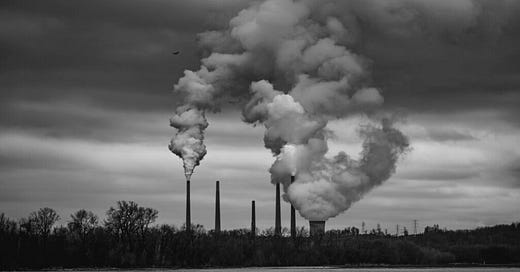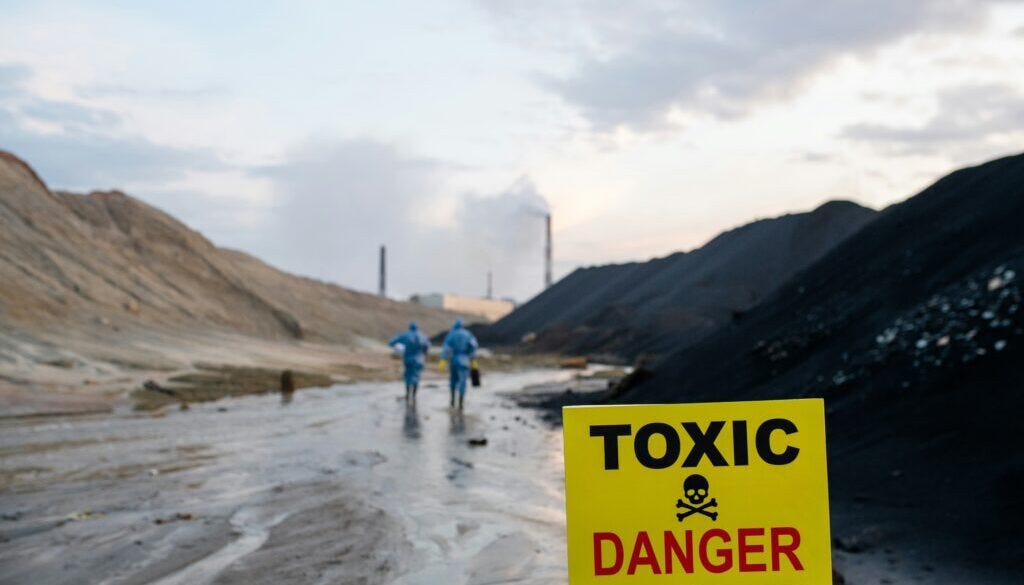Must-read recap: The New Lede's top stories
Dissolving EPA's research arm; sea level rise; CA bill targets harmful ultra-processed school foods; contaminants in US baby formulas; "making America toxic again;" EPA staff's open letter.
Dissolving EPA’s research arm may jeopardize toxic chemical protections
The Trump administration’s plan to eliminate the entire research arm of the US Environmental Protection Agency (EPA) would have devastating impacts on toxic chemical research, destabilizing infrastructure that forms the scientific backbone of regulations that protect people and the environment, according to former agency leaders.
The move to dissolve the EPA’s Office of Research and Development (ORD), first reported by The New York Times last week, would stagnate new environmental regulations for years to come, the former EPA officials claim.
The ORD, which employs more than 1,000 scientists, operates six research programs that work to inform policy making on a range of environmental issues, including air and water quality, climate concerns, and chemical safety. ORD research topics include chemicals such as per- and polyfluoroalkyl substances (PFAS), pesticides, greenhouse gases and health-harming soot.
The administration reportedly plans to cut up to 75% of ORD’s staff and to relocate those left to other parts of the agency. (Read the rest of the story.)
Past greenhouse gas emissions may raise sea levels by nearly two feet, study finds
Heat-trapping emissions released over more than a century and a half by the world’s largest fossil fuel and cement producers are projected to cause global sea levels to rise about one to two feet through the year 2300, even if future emissions are drastically cut, according to new peer-reviewed research.
The study, published March 18 in the journal Environmental Research Letters, is the first to measure how past greenhouses gas emissions from fossil fuel companies may contribute to future long-term sea level rise, one of the consequences of human-caused climate change, according to the authors.
“This research contributes to the growing body of work that quantifies how fossil fuel producers’ past emissions will harm future generations,” Delta Merner, co-author of the study and associate director of the Science Hub for Climate Litigation at the Union of Concerned Scientists, said in a statement. “Island and coastal communities will bear the disproportionate brunt of the impacts of sea level rise over time, including infrastructure damage, habitat loss, saltwater intrusion, increased flooding, economic burdens and forced displacements.” (Read the rest of the story.)
California bill aims to phase out harmful ultra-processed school foods
As states across the country move to ban food dyes, California lawmakers on March 19 introduced the first US bill that would phase out certain ultra-processed foods from school meals.
If signed into law, Assembly Bill 1264 would establish the first statutory definition of what qualifies as an ultra-processed food and would direct state scientists to work with university experts to identify particularly harmful products, which would then be removed from school cafeterias by 2032.
“We have not done enough to protect [children] from ultra-processed foods and beverages that have far more in common with a cigarette than they do a fruit or vegetable,” Ashley Gearhardt, a professor of psychology at the University of Michigan and director of the school’s Food Addiction Science & Treatment Lab, said on a March 19 press call.
AB 1264 is a “courageous step forward” towards treating ultra-processed foods like the serious health threats they are, said Gearhardt. (Read the rest of the story.)
US baby formulas often contain contaminants, study finds
A new investigation that tested 41 types of powdered baby formula sold in the US found that about half of the products contained concerning levels of contaminants, including lead, arsenic, per- and polyfluoroalkyl substances (PFAS), bisphenol A (BPA) and acrylamide.
“Millions of parents rely on infant formula during the first important months of their babies’ lives and deserve access to safe, healthy and nutritious products,” said James Rogers, director of product safety testing at Consumer Reports, the nonprofit organization that performed the investigation, in a statement.
Apparently in response to the report, the FDA announced March 18 that the agency would be “taking steps to enhance its efforts to ensure the ongoing quality, safety, nutritional adequacy, and resilience of the domestic infant formula supply.” (Read the rest of the story.)
10 ways the Trump administration is “making America toxic again”
(Republished from the Program on Reproductive Health and the Environment.)
(Opinion columns published in The New Lede represent the views of the individual(s) authoring the columns and not necessarily the perspectives of TNL editors.)
“Our goal is to get toxins out of the environment, poisons out of our food supply, and keep our children healthy and strong.” – President Trump during his State of the Union address, March 4, 2025
We agree. This is a goal we have been working toward since our inception. However, while this administration says removing toxics from the environment and keeping children healthy is their goal, many of their actions are doing the opposite.
10 ways the new administration will expose children to more chemicals that will make them sick:
#1: Put chemical industry lobbyists in charge at EPA, including one who worked for Dupont, a leading manufacturer of PFAS that have now contaminated drinking water supplies around the world. (Read the rest of the opinion column.)
An open letter from EPA staff to the American public
Editor’s note: This op-ed was written by a group of current and former employees of the US Environmental Protection Agency, who have asked to remain anonymous due to concerns about retaliation. It was originally published by Environmental Health News and is republished with permission.
The Trump administration is making accusations of fraud, waste, and abuse associated with federal environmental justice programs under the Inflation Reduction Act (IRA) as justification for firing federal workers and defunding critical environmental programs. But the real waste, fraud, and abuse would be to strip away these funds from the American people.
As current and former employees at the US Environmental Protection Agency (EPA) who developed and implemented the agency’s environmental justice funding and grant programs, we want to offer our first-hand insights about the efficiency and importance of this work. This is not about defending our paychecks. This is about protecting the health of our communities. (Read the rest of the op-ed.)








